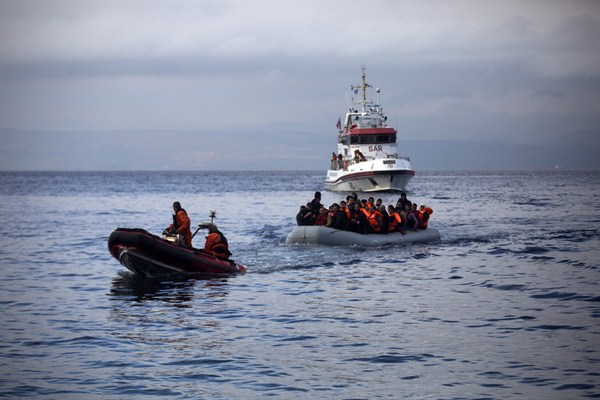Frontex, the European Union’s border agency, announced yesterday that it would deploy a so-called Rapid Border Intervention Team to help manage the large number of refugees arriving on the Greek islands. The announcement followed one last week that the agency will send staff to Greece’s northern border with Macedonia to help register migrants there, and will supplement the 195 Frontex staff already working in the Greek islands in the Aegean that have been most affected by the refugee crisis.
The moves come after officials from the EU and several member states accused Greece of not doing enough to protect its borders and refusing to accept outside help to get the situation under control. Over 700,000 migrants have entered Europe through Greece this year. Greece’s intransigence on the issue prompted the EU to threaten to suspend it from the Schengen Agreement, the 1985 deal that allows for visa-free travel among the 26 signatories. However, much like threats earlier this year to kick Greece out of the eurozone, suspending Greece’s Schengen membership would have been legally tricky. Athens’ acceptance of further assistance from Frontex makes that threat moot.
Tensions among member states over the EU’s external borders have been heightened for the past several years. When the Arab Spring began in 2011, Italy saw a massive influx of refugees coming from Tunisia, which prompted then-Italian Prime Minister Silvio Berlusconi to call for greater EU solidarity in managing the flow of people. But other European countries were not forthcoming with assistance. Overwhelmed by the over 25,000 migrants that arrived on its shores, Italy issued temporary residence permits to Tunisian migrants, allowing them to travel on to France, their preferred destination. This sparked tensions with Paris, which imposed border checks as a means of limiting the number of migrants entering French territory, and both countries accused each other of violating their Schengen obligations.

